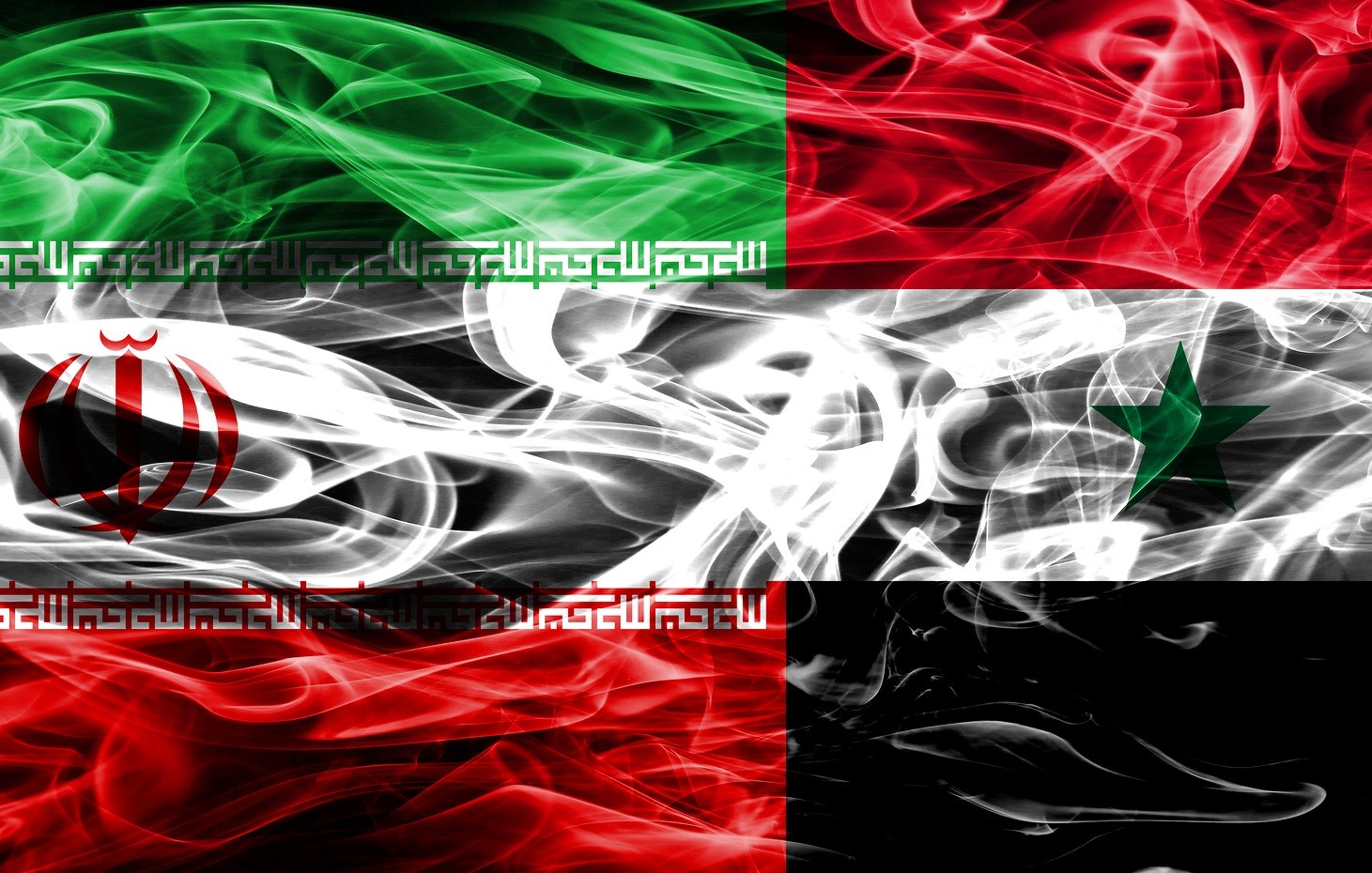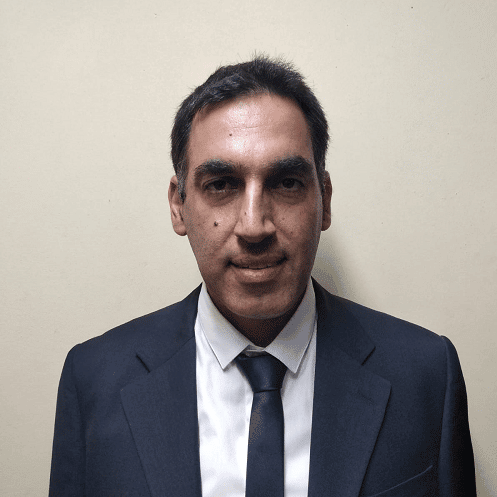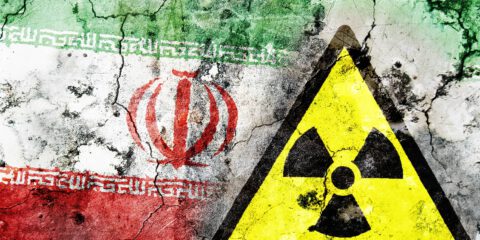Iran is hiding its efforts to establish a presence in Syria, for both internal and external reasons. This policy involves numerous internal contradictions and to avoid admitting to them, the IRGC and Hezbollah are conducting a propaganda campaign.
Since the beginning of the civil war in Syria in 2011, Iran has gradually been building up a presence there. This is based on Iran’s direct involvement in the fighting by means of the Islamic Revolutionary Guard Corps (IRGC) and a variety of trans-national Shiite militias that it has created and nurtured. Iran is trying to obfuscate its presence in Syria, which will serve its interests in two ways: First, it serves Iran’s internal need to conceal, to whatever extent possible, the amount of resources it is investing in Syria at the expense of Iran’s citizens, particularly at a time when one of the main demands of protestors in Iran is to shift the huge amount of resources being used in Syria toward improving their standard of living. Second, the policy is part of the Iranian attempt to camouflage as much as possible its presence in Syria from those that oppose it and, in particular, Israel, the US and Saudi Arabia.
However, there are numerous internal contradictions within this policy of obfuscation since Iran cannot maintain a low profile while at the same time building up its military presence in Syria and therefore its deployment there has led to Israeli attacks. By means of aerial and other types of attacks that are attributed to it, Israel is officially standing behind the red lines it has drawn for itself in Syria, namely the prevention of an Iranian buildup in Syria and the “trickle” of advanced weapons from Iran to Hezbollah. Israel is no longer concealing its attacks in Syria and sometimes admits responsibility for them. It has admitted that from 2012 until August 2017, it carried out close to one hundred attacks on Iranian weapons shipments destined for Hezbollah and other organizations. In addition, at the beginning of September 2018, Israel admitted that since the beginning of 2017 it has attacked more than two hundred Iranian targets in Syria.
These attacks make clear the internal tension implicit in the Iranian buildup in Syria. In an attempt to obscure this tension, senior IRGC commanders initiated a propaganda campaign that helps Teheran maintain deniability. As part of this campaign, Iran is claiming that the Israeli attacks have only minor results while Iran’s reprisals against Israel are highly effective. This is in spite of the fact that Iran has officially admitted that seven IRGC soldiers were killed on April 10, 2018 in a reprisal attack by Israel against the Syrian T4 base, from which an Iranian unmanned aerial vehicle that penetrated Israeli airspace was launched in February.
In the face of Israel’s pro-active policy in Syria, Iran was faced with the question of how to respond. However, apart from the failed attack by the Quds forces on the Golan Heights on May 10, which involved 32 missile launches—of which four were intercepted and the rest fell outside of Israel—Iran has adopted a passive policy of not operating against Israel. This is despite Israel’s attack in response to the Iranian missile attack, during which seventy Iranian targets in Syria were attacked within two hours as part of the “House of Cards” operation, and in spite of the additional attacks by Israel since then. Thus, it appears that while Iranian leader Ali Khamenei has declared that Iran will react decisively if attacked, it has passively endured the Israeli attacks in Syria.
Iranian propaganda: Loss of life and damage to property as a result of the missile attacks against the Golan Heights
In the face of this reality, the IRGC and Hezbollah, its proxy, have chosen to conceal the absence of an effective response by means of a series of lies that are meant to present Iran as the victor which has inflicted major losses in life and property on Israel.
In a major speech given in Teheran on Quds Day on June 8th, 2018, the Deputy Commander of the IRGC, Hossein Salami, denied the attacks carried out by Israel against Iran in Syria since the attack in April and claimed that at the height of the Iranian missile attack against Israel in response to the attack on T4, Teheran conveyed a message to Israel that if it responds to the Iranian attack, the IRGC would flatten Tel Aviv with its missiles, and since then, according to him, Israel has refrained from attacking Iran.
In a speech in Teheran at the beginning of July 2018, IRGC political bureau director, Yadollah Javani, claimed that in the missile attack on the Golan Heights the Quds forces fired more than 60 missiles at Israel, which killed 50 people. Javani claimed that Israel is concealing its losses in this attack and described it as being paralyzed after receiving an Iranian message by way of Russia that Iran will launch missiles at Tel Aviv if the Israeli attacks continue.
Ramazan Sharif, the IRGC spokesman, explained in mid-July 2018 in an interview with the Al Manar channel of Hezbollah that the Israeli attacks in Syria are intended to shift global public opinion away from the illegitimate State of Israel, which was founded on occupied Palestinian land. Sharif declared that Israel is terrified and cannot stand up to Iran and Hezbollah in Syria. Other senior members of the IRGC have denied the Israeli claim that the “House of Cards” operation included attacks on more than 70 Iranian targets and claimed that the attack was in fact limited to the launch of only a few missiles.
The journalist Hossein Dalirian, the head of the military desk at the Tasnim News Agency, which is identified with the IRGC, went even further by claiming that the Iranian reprisal for the Israeli attack on T4 involved the firing of missiles at ten secret bases of the Israeli Intelligence Corps in the Golan Heights and that the missiles had damaged sensitive intelligence facilities, including eavesdropping equipment and radar. According to him, Iran had demonstrated intelligence superiority in that it identified these secret IDF bases.
Hezbollah also participated in the IRGC’s campaign of lies. In a speech given in mid-May, 2018, Secretary General Hassan Nasrallah claimed that in the counter-attack by the Quds forces, 55 missiles were fired and landed on IDF bases with great accuracy, despite Israeli attempts to intercept them. He added that Israel had concealed the losses it incurred in this attack. In another speech he gave in late August 2018, Nasrallah described Israel as a weak country and declared that it lacks the motivation to fight and therefore is not ready for another war. Essentially, in standing behind its red lines in Syria again and again Israel is taking a risk that a war will break out in the North and the decision makers in Israel prefer that a war be fought now in order to disrupt the supply of advanced weapons to Hezbollah and the Iranian buildup in Syria, rather than fighting a war later on when the other side has already completed its buildup for its outbreak.
Hezbollah also reported on its site Al-Ahed that the Iranian missile counter-attack in May damaged the base of Unit 9900, a deciphering unit in the Israeli Intelligence Corps. The Hezbollah report was quoted by the IRGC-affiliated Tasnim News Agency. In truth, Unit 9900 does not have any bases in the Golan Heights.
As part of its policy against Israel in Syria, Iran is working hard to build an offensive deployment against Israel, while taking into account that even if part of the system is neutralized by Israel, it will still be able to establish a broad presence in Syria and to supply precision weaponry to Hezbollah. As part of Iran’s quiet military buildup in Syria and its desire to conceal the major expenditure on its military involvement in the fighting in Syria from the Iranian public, it is denying the existence of Iranian bases throughout Syria. Therefore, it cannot confirm when they are attacked. An Iranian military response to the Israeli attacks therefore goes against Iran’s policy of obfuscation in Syria.
At the same time, it appears that the Iranian decision not to respond to Israeli attacks is the result of three factors:
First, a response is liable to harm Iranian interests since it may pull Iran into a war against Israel. Such a war, in view of the threats voiced by Israel, is liable to include the Iranian nuclear facilities in Iran itself and will put an end to the Assad regime.
Second, an Iranian response is likely to directly endanger the buildup of forces that Iran has accomplished so far. According to the strategic importance attributed by Teheran to maintaining its influence in Syria and to the survival of the Assad regime, Iran has invested huge economic resources in Syria–at a rate of at least $15 billion annually–since the outbreak of the civil war in 2011. These funds have mainly been in the form of a credit line to the Assad regime for purchasing oil and other goods, but they also include other types of expenditure, including the cost of financing, arming and operating the trans-national Shiite militias that Iran has deployed in Syria. These militias consist primarily of the Afghan Fatemiyoun, the Pakistani Zeinabiyoun, the Lebanese Hezbollah, Iraqi Shiite militias (and in particular Liwa Abu al-Fadl al-Abbas, Liwa Zulfiqar, Kata’ib Hezbollah and al-Nujaba’) and local Syrian militias.
Third, it appears that in the face of the growing protests in Iran, whose leading demand is “money for the Iranian people, not for Syria”, the Iranian regime cannot allow itself to be perceived as the defeated side in Syria. An embarrassment of Iran in Syria may provide fuel to the protesters and may leverage the protest movement. Therefore, the Iranian denials, and in particular the propaganda described above, serve the interests of the regime by supporting the lie that Israeli attacks are having little effect while the Iranian response against Israel has been highly effective.
JISS Policy Papers are published through the generosity of the Greg Rosshandler Family.
photo: Bigstock









 - בניית אתרים
- בניית אתרים